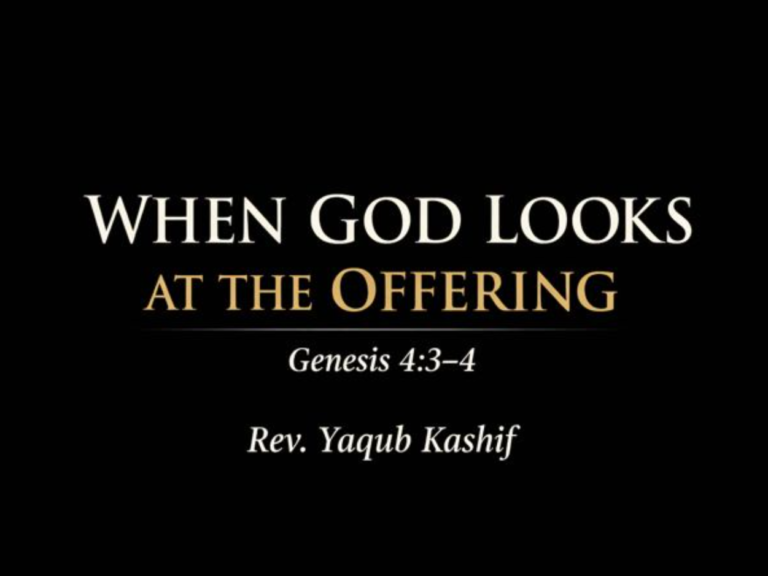6 Then Paul, knowing that some of them were Sadducees and the others Pharisees, called out in the Sanhedrin, “My brothers, I am a Pharisee, descended from Pharisees. I stand on trial because of the hope of the resurrection of the dead.” 7 When he said this, a dispute broke out between the Pharisees and the Sadducees, and the assembly was divided. 8 (The Sadducees say that there is no resurrection, and that there are neither angels nor spirits, but the Pharisees believe all these things.)
9 There was a great uproar, and some of the teachers of the law who were Pharisees stood up and argued vigorously. “We find nothing wrong with this man,” they said. “What if a spirit or an angel has spoken to him?” 10 The dispute became so violent that the commander was afraid Paul would be torn to pieces by them. He ordered the troops to go down and take him away from them by force and bring him into the barracks.
11 The following night the Lord stood near Paul and said, “Take courage! As you have testified about me in Jerusalem, so you must also testify in Rome.”
Faith That Stands Alone/홀로 서는 믿음
Acts 23:6–11/사도행전 23장 6 ~11절
There are moments in life when standing is not optional. Moments when all support is
gone, explanations don’t help, and misunderstanding surrounds you like thick fog. These
are not the glamorous stages of ministry or the celebrated mountaintop moments of
calling. These are the lonely courtrooms of the soul where faith stands alone, not to be
seen, but to be true.
인생에는 버텨야만 하는 순간이 있습니다.모든 지지가 사라지고, 어떤 설명도
소용없고, 오해가 짙은 안개처럼 나를 감쌀 때가 있습니다.그 순간은 화려한
사역의 무대도, 부르심의 정상에서 누리는 영광도 아닙니다.그 순간은 영혼의
법정에서 홀로 믿음이 서는 자리입니다. 보여지기 위해서가 아니라, 진실하기
위해서서는 자리입니다.
This was Paul’s reality in Acts 23. Just one chapter earlier, he had shared his testimony
the moment Jesus called his name on the Damascus Road, the moment light surrounded
him, and purpose filled his lungs. But now, Paul is not surrounded by glory. He is
surrounded by division, accusation, and danger. The crowd is gone. The support is silent.
And yet, Paul does not break. He stands.
이것이 바로 사도행전 23 장에서 바울이 경험한 현실입니다.단 한 장 전만 해도
그는 자신의 간증을 나눴습니다.다메섹 도상에서 예수께서 그의 이름을 부르신
그 순간, 빛이 그를 감싸고 목적이 그의 폐부를 가득 채운 그 순간
말입니다.그러나 지금 바울은 영광으로 둘러싸여 있지 않습니다.그를 감싸고
있는 것은 분열과 고소, 그리고 위험입니다.군중은 사라졌고, 지지는 침묵하며,
그러나 바울은 무너지지 않습니다. 그는 버팁니다.
The Sanhedrin before him is a picture of chaos. Some are Sadducees, who deny the
resurrection and anything supernatural. Others are Pharisees, who pride themselves on
legal rigor. But neither group sees Paul for who he truly is a servant of Christ, called to
testify.
2
그 앞에 선 산헤드린은 혼란의 그림자입니다.어떤 이들은 부활도 초자연적인
일도 부정하는 사두개인이고,또 어떤 이들은 율법의 철저함을 자부하는
바리새인입니다.
그러나 이 어떤 무리도 바울을 있는 그대로 그리스도를 증언하기 위해 부름 받은
종으로 보지 못합니다.
Paul, with deep discernment, acknowledges the religious division and says, “I am a
Pharisee, descended from Pharisees. I stand on trial because of the hope of the
resurrection of the dead.” With this statement, he does more than defend himself he
reveals his foundation. He stands, not just for doctrine, but for the core truth that Jesus
Christ has risen from the dead, and that resurrection life defines his mission and identity.
바울은 깊은 분별력으로 이 종교적 분열을 인식하고 이렇게 말합니다.“나는
바리새인이요, 바리새인의 아들이다. 나는 죽은 자의 부활의 소망으로 인해
심문을 받고 있다.”이 말은 단순한 자기 방어를 넘어, 자신의 기초를 드러내는
고백입니다. 그는 단지 교리를 말하는 것이 아니라, 예수 그리스도께서 죽은 자
가운데서 살아나셨다는 핵심 진리 위에 서 있음을 밝히는 것입니다.그리고 이
부활의 생명이 그의 사명과 정체성을 정의합니다.
At that declaration, the room erupts. The assembly, already divided in theology, explodes
in conflict. Paul’s testimony doesn’t soothe the crowd it shakes the system. This is what
truth often does. It does not blend in quietly; it exposes what has been hidden. It forces
religious comfort zones to confront divine reality.
그 고백이 나오자, 방은 폭발하듯 뒤집힙니다.이미 신학적으로 나뉘어 있던
회중은 충돌과 갈등 속으로 빠져듭니다.바울의 증언은 그들을 진정시키지
않았습니다. 오히려 체계를 뒤흔들었습니다.진리가 종종 그렇습니다. 조용히
섞이지 않고, 숨겨졌던 것을 드러냅니다.종교적 안락지대를 깨뜨리고, 하나님의
실재 앞에 마주서게 만듭니다
But what happens next is even more revealing. The dispute becomes so violent that the
Roman commander fears Paul might be torn to pieces. Soldiers rush in to pull him from
chaos. In this moment, Paul is not just physically threatened he is emotionally alone. He
has stood faithfully, but the result has been misunderstanding, conflict, and violence.
3
그러나 그 다음 순간이 더욱 깊은 메시지를 전해줍니다.분쟁이 너무 격렬해져서,
로마의 천부장은 바울이 찢겨 죽을까 두려워하게 됩니다.병사들이 혼란 속에서
바울을 끌어냅니다.이 순간 바울은 단지 육체적으로 위협받는 것이 아닙니다.
그는 정서적으로도 철저히 외로워졌습니다. 그는 충실하게 버텼지만, 그 결과는
오해, 갈등, 폭력이었습니다.
And yet, that night, in silence and solitude, something holy happens. Scripture tells us,
“The Lord stood near Paul.” Those six words change everything. Jesus Himself not an
angel, not a dream stands beside Paul. In Greek, the word used here “ἐπέστη” (epistas)
means “to come near and remain.” This is not a passing appearance. This is presence.
This is intimacy. This is the reward for standing alone: the companionship of the One
who never leaves.
하지만 그날 밤, 침묵과 고독 가운데, 거룩한 일이 일어납니다.성경은 이렇게
전합니다.
“주께서 바울 곁에 서셨다.”이 여섯 단어가 모든 것을 바꿉니다.예수님께서 친히
천사가 아니라, 환상이 아니라 직접 바울 곁에 서셨습니다.헬라어로 여기 사용된
단어 “ἐπέστη”(epestē)는 가까이 오고, 머물다라는 뜻입니다.이것은 잠깐의
등장이나 스쳐 지나감이 아닙니다.이것은 임재입니다.친밀함입니다.홀로
버틴자의 믿음에 대한 보상입니다.절대 떠나지 않는 분의 동행입니다.
Jesus speaks words Paul desperately needed: “Take courage! As you have testified about
me in Jerusalem, you must also testify in Rome.” It was not just comfort it was
confirmation. Paul’s obedience had not gone unnoticed. His lonely stand in Jerusalem
was not the end it was preparation for Rome. His private faithfulness had qualified him
for public influence.
예수님께서 바울이 간절히 필요로 했던 말씀을 하십니다.“담대하라! 네가
예루살렘에서 나에 대해 증언한 것 같이 로마에서도 증언해야 한다.”이것은 단지
위로가 아니라, 확증입니다.바울의 순종은 하나님 앞에 분명히
보였습니다.예루살렘에서의 외로운 믿음의 자리는 끝이 아니라 로마를 위한
준비였습니다.조용한 충성은 장차 드러날 영향력을 위한 자격이었습니다.
This is the pattern of divine purpose: God often sends us to larger places after we’ve
stood alone in smaller ones. Our quiet obedience today prepares us for visible impact
tomorrow. Faith that stands alone is never wasted. It is honored by the God who sees in
secret and rewards in glory.
4
이것이 하나님의 목적 안에서 반복되는 패턴입니다.하나님은 종종 작은 자리에서
홀로 선 자를, 더 큰 자리로 보내십니다.오늘의 조용한 순종이, 내일의 눈에
보이는 사역을 준비합니다.혼자 서는 믿음은 결코 낭비되지 않습니다.그 믿음은
은밀한 중에 보시는 하나님께서 기억하시고, 영광 중에 갚으시는 분께서
기뻐하십니다.
So, what does this mean for us? It means that being misunderstood is not failure. It means
that truth may shake the atmosphere before it changes hearts. It means that when
everyone walks away, the Lord still draws near. And it means that standing today might
be what prepares you for the assignment that waits tomorrow.
그렇다면, 이것이 우리에게 무엇을 의미할까요?그것은, 오해받는 것이 실패가
아니라는 것을 의미합니다.진리는 분위기를 흔들어 놓고서야, 마음을
변화시킨다는 것을 의미합니다.모두가 떠난 순간에도, 주님은 더 가까이
오신다는 것을 의미합니다.
그리고 오늘 당신이 믿음으로 서는 그 자리가, 내일의 사명을 위한 준비가 될 수
있다는 것을 의미합니다.
Faith that stands alone is the kind of faith that heaven backs. It’s the faith of Elijah on
Mount Carmel. The faith of Stephen before the Sanhedrin. The faith of Jesus before
Pilate. The kind of faith that stands, bleeds, and still believes.
홀로 버티는 믿음— 이것이 바로 하늘이 지지하는 믿음입니다.갈멜산의 엘리야의
믿음, 산헤드린 앞의 스데반의 믿음,빌라도 앞에 서신 예수님의 믿음.그 믿음은
서고, 상하고, 피 흘리면서도 믿는 믿음입니다.
And when you stand like that in love, in truth, in obedience you can be sure of one
thing: He who called your name will never walk away. He will stand beside you.
그리고 당신이 그런 믿음으로 선다면 사랑 안에서, 진리 안에서, 순종 안에서
선다면 한가지는 확실합니다. 당신의 이름을 부르신 그분은, 결코 당신 곁을
떠나지 않으십니다.
그분은 당신 곁에 서실 것입니다.







